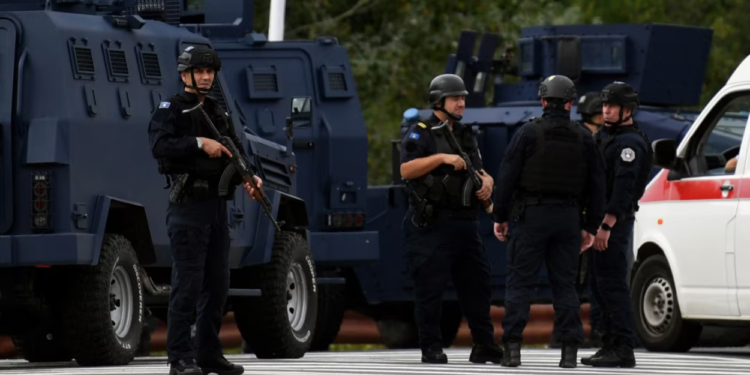Belgium (Brussels Morning) – Brussels mayors, spanning political divides, demand enhanced funding and police support, citing financial strains and deficiencies in policing methods.
Brussels communes have come together to urge improved financing and strengthened police funding in the wake of the coming June elections. Brussels mayors belonging to various political ideologies have come jointly to highlight a critical need to review existing budgetary rules as each commune has faced considerable financial upsets since 2020. They decried an upsurge in competencies without an affiliated boost in funding.
“We have had to negotiate with a health crisis, the reception of Ukrainian refugees and a peak in social precarity,” Mayor of Woluwe-Saint-Lambert Olivier Maintain (DéFI) noted during a press conference. “Regardless of the partnerships in place and our budgetary limitations, we have answered when other authorities have failed.”
Crisis management has directed to four communes being incapable of adhering to the obligatory budgetary balance ruled by the Brussels-Capital Region. The mayor of Woluwe-Saint-Pierre Benoît Cerexhe (Les Engagés) expressed this situation has provoked “weariness” among municipalities and called for reality to be taken into account.
The group is consequently urging the Regional Government to improve the amount of funding each municipality obtains via the general commune grant (DGC) and to decrease the number of grants available as the competition for subsidies “creates competition between municipalities and causes an overwhelming administrative burden.” They also consider pensions for municipal employees should become the obligation of either the Federal or Regional Government.
At the same press gathering, Etterbeek Mayor Vincent De Wolf (MR) highlighted the detrimental effects of police deficiencies across the city. He attacked the ‘KUL norm’, the current method used to estimate how many police officers are necessary for each location that was established in the 1990s. The system has directed Brussels police forces to be underfinanced by 10%. “It has never been indexed,” Brussels Mayor Philippe Close (PS) stated. “We have about ten people per shift. It’s a disgrace.”
The Federal Government desires to recruit 1,600 more police this year to manage long-standing staff shortages. The Mayor called for an integration of police sections across Brussels as a way to manage the sector’s issues. Indeed, cross-border collaboration is viewed as a key to multiple challenges shared by communes, with all 19 Brussels mayors in acceptance of a ‘Brussels-Capital Community’, an opinion that first emerged in 2011.
The project would form links with Flemish and Walloon communes within the old Brabant province, but Flanders has historically resisted the initiative due to anxieties about Brussels’ expansion. Within the capital, the political intention for such a project exists. In his concluding comments, Close affirmed “The message is obvious: we are ready to collaborate more and allocate more resources to enhance the quality of life for all residents in Brussels and nearby municipalities.”
Brussels mayors are united in their call for improved funding and police support ahead of the upcoming elections. Highlighting financial strains and police deficiencies, they urge the Regional Government to reassess budgetary rules and enhance the general commune grant. Additionally, they advocate for the integration of police sections across Brussels to address sectoral challenges. Despite historical resistance from Flanders, the idea of a ‘Brussels-Capital Community’ receives support within the capital, emphasizing a commitment to collaboration for the betterment of residents’ quality of life.




